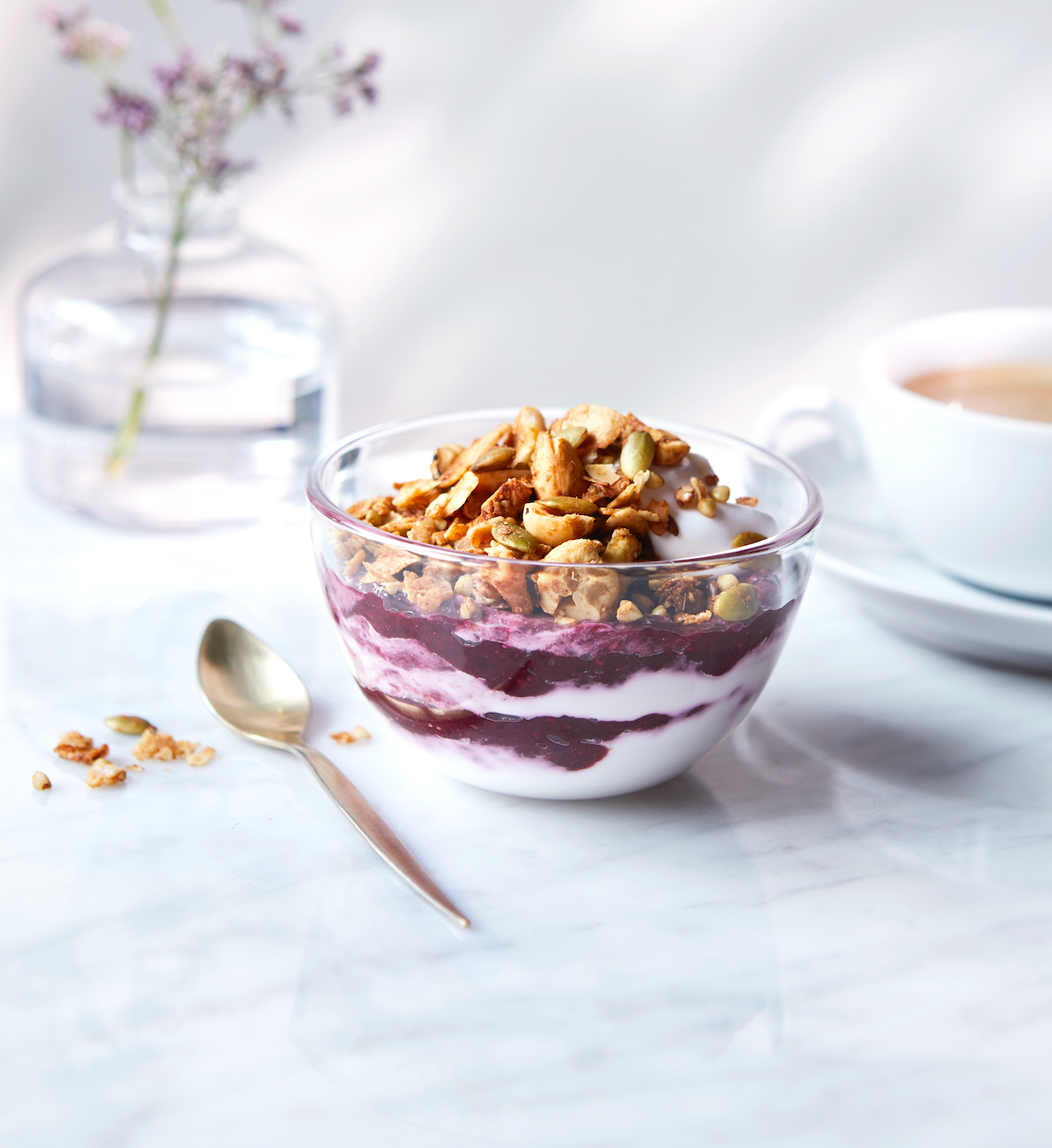
Keep Your Fats Close, and Your Carbs Closer: A Nutritionist’s View on the Importance of a Balanced Diet
By Stefanie Emery, and nutritionist Georgine Leung.
Carbs, fats, bread, oil, pasta, dairy.
Unfortunately, society has constructed many misconceptions around these foods, leading to the irrational fear around two major food groups, fats and carbohydrates. However, these two groups are not mutually exclusive, and are important additions to our diet.
In fact, most foods contain a spectrum of nutrients that include carbohydrates, protein and fats, some in higher proportions than others.
Along with protein, fats and carbohydrates are macronutrients that play a crucial role in maintaining our health.
Here is Kurami nutritionist, Georgine Leung’s take on why incorporating a balance between the two is so important:
Q: What is the importance of incorporating a sufficient amount of carbohydrates into one’s diet?
Carbohydrate consists of two major types: starch and sugars that both provide 4kcal per gram. Starchy carbohydrate are important in our diet because it is a readily usable source of energy. Starchy foods should form the bulk of our diet. Dietary fibre is also sometimes considered as a ‘complex’ carbohydrate because of its structure, however because of its unique functions in our body, they are now considered a group of its own. Starchy foods that are whole grain or brown can also provide us with more fibre, contributing to gut health. At Kurami, we celebrate these foods, and take great pride in the balanced offerings of our meal paths. In our paths, you will find a multitude of deliciously nutritious Ancient Grains, such as amaranth, quinoa and buckwheat.
When it comes to sugar, it should be the ‘free sugars’ that we should be a little more wary about. This is the type of sugar that is added to foods and drinks, that also include sugars in honey, syrups, nectars, unsweetened fruit, vegetable juices and smoothies. This is because eating too much sugar contributes to overall energy intake, as well as tooth decay.
Q: What is the recommended amount of carbohydrates that one should have in every meal?
It is difficult to quantify the amount of carbohydrate for each meal, because food provides many different nutrients altogether. As a guide, half of our dietary energy should come from carbohydrates. A good way to visualise the quantity of carbohydrates in each meal, is to ‘base your meal on starchy foods’ and choose higher fibre options when you can. There are plenty of options out there – from a range of grains such as brown rice to more unusual types such as sorghum, buckwheat and quinoa, potatoes (with skin on), bread – the list is endless! At Kurami, we strive to source many different types of options that are higher in fibre than the more readily available ones.
Q: How does the incorporation of a sufficient amount of healthy fats play a role in maintaining overall wellbeing?
Fat provides energy and also the essential fatty acids that the body cannot make. It also carries the fat-soluble vitamins and helps the body to absorb it. Fat maintains the normal structure of cells and many processes in the body.
When we talk about fats, we are referring to the different fatty acids that are normally categorised as saturates or unsaturates, depending on the chemical structure.
Healthy fats generally refer to monounsaturates and polyunsaturates (omega-3 and omega-6) in foods. Diets which are rich in the monounsaturates and polyunsaturates are linked with reduced levels of blood cholesterol.
The long-chain omega-3 fatty acids, specifically EPA (eicosapentaenoic acid) and DHA (docosahexaenoic acid) are not produced by the body but found in some foods. They are particularly important in heart health.
Q: What are your recommenced sources from each of these food groups?
There are so many! Especially we eat foods not nutrients, so going for different types each day helps to get all the nutrients you need. There are plenty to choose from nowadays, and there are some exciting offers at Kurami such as chicken curry with amaranth. At Kurami, we focus on integrating many different types of Ancient Grains, in order to provide more varied and interesting options for our clients! Once a week, we also offer a portion of oily fish that is great sources of omega-3 fatty acids.
As the saying goes, variety is always the spice of life. It’s useful to keep a range of grains and noodles in the cupboard and mix it up with spuds too.
Overall…
The key message is to focus on consuming colourful, vibrant, whole foods through balanced meals, that are made up of nutrient dense foods--whether it be a loaf of rye sourdough or fresh seasonal fruit; eat them free from worry.
Why not check out our Kurami pathways today? Click here to begin your Kurami path today.



